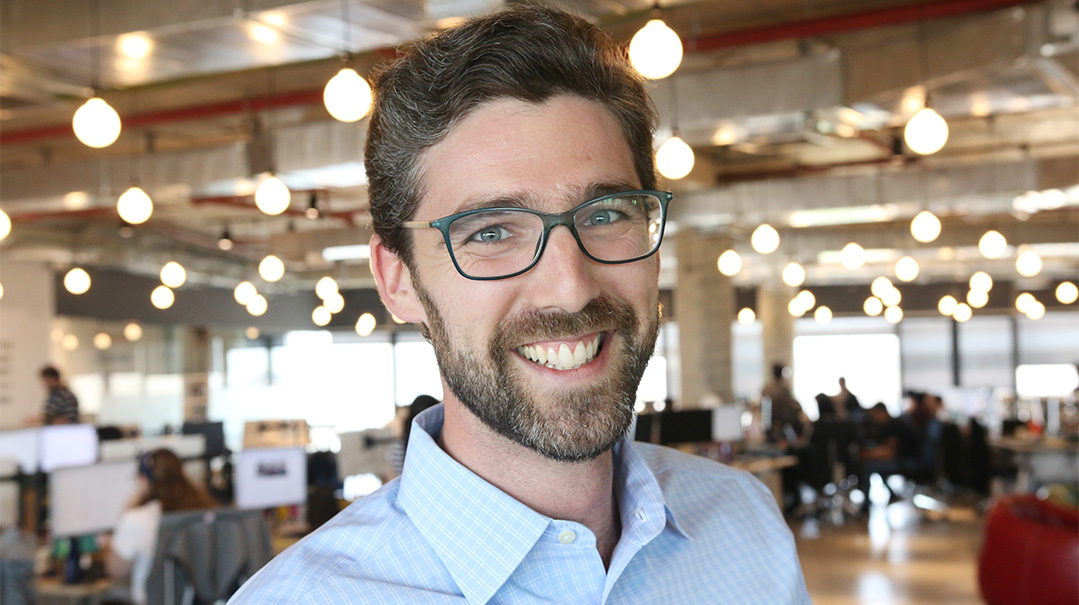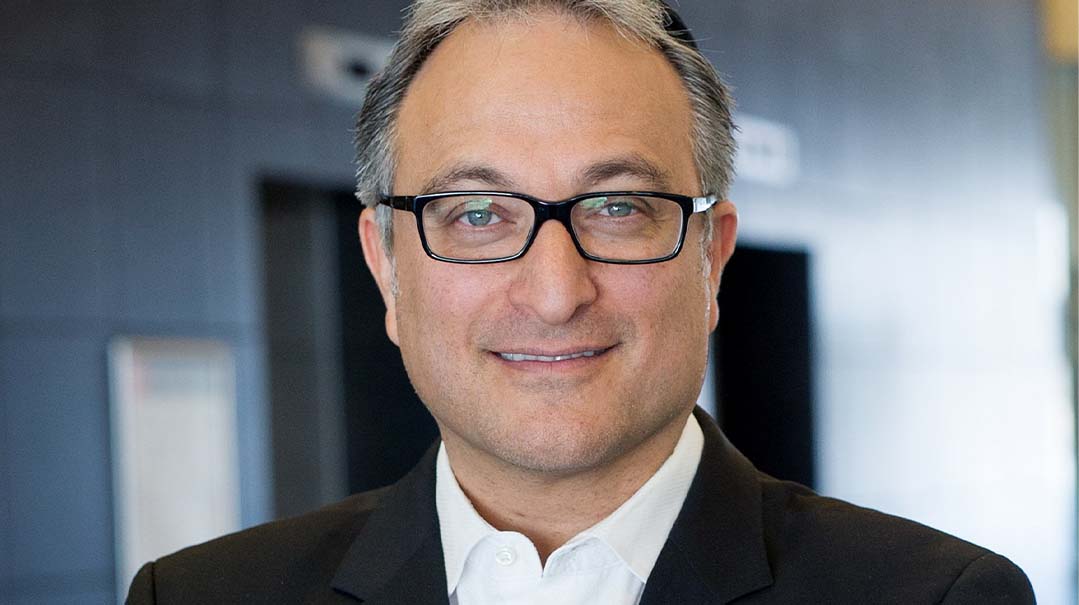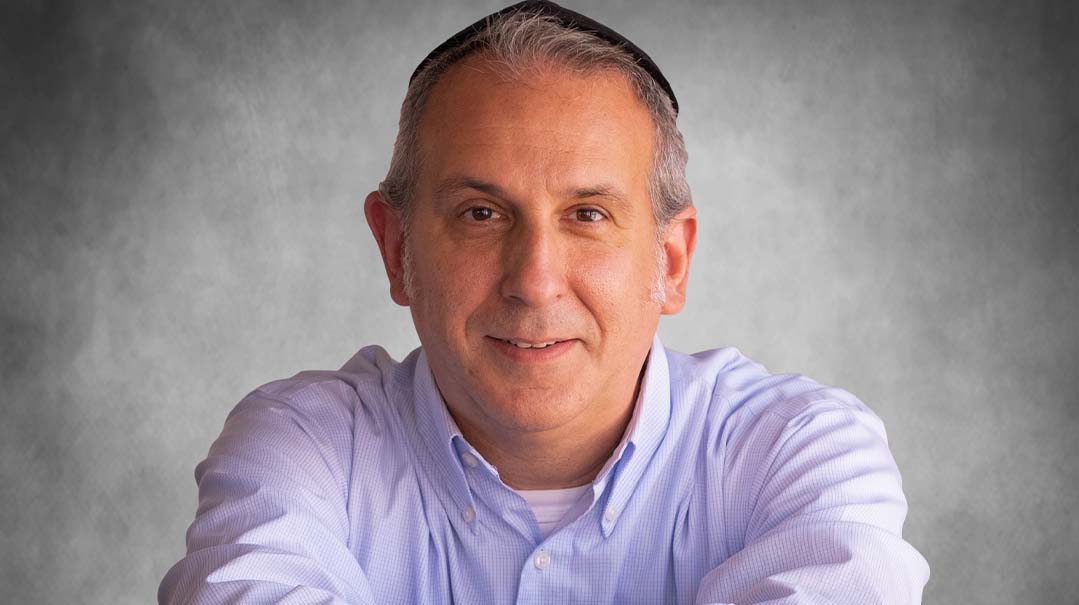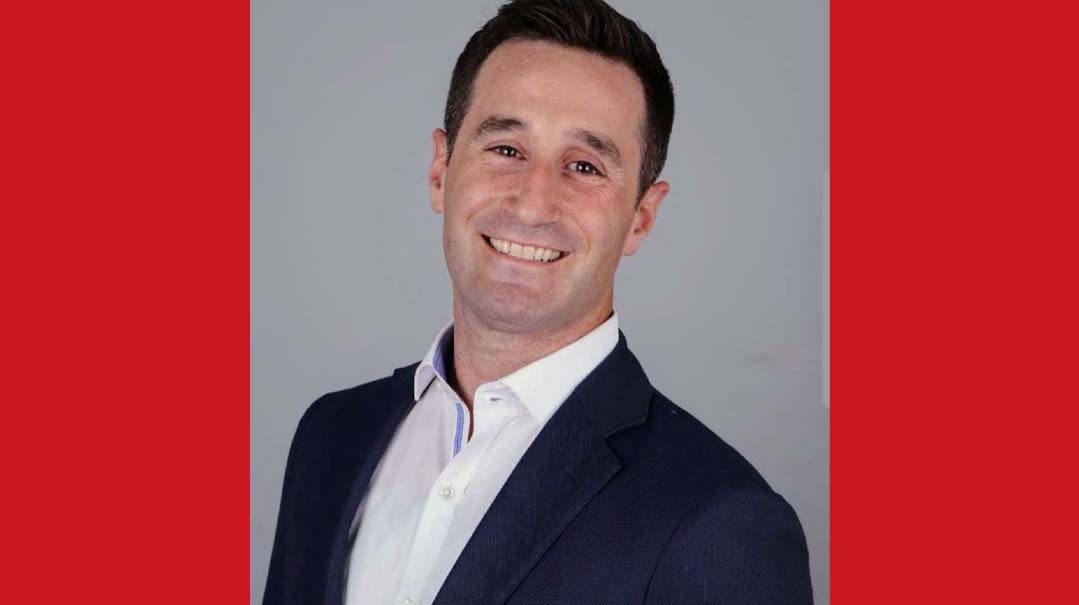Work/Life Solutions with Ilan Regenbaum

"Invest yourself fully into whatever you do"
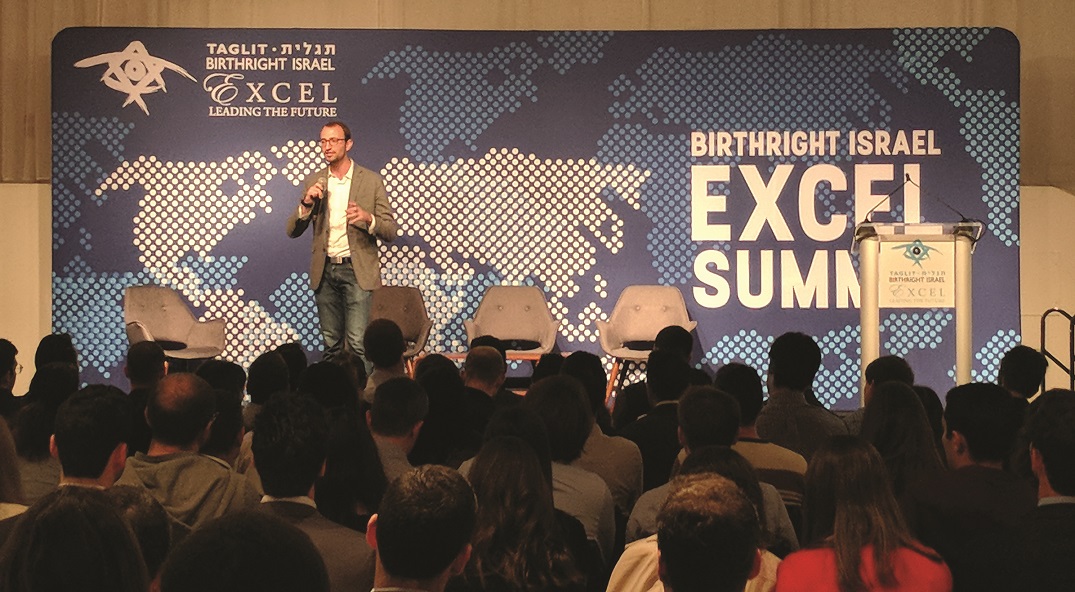
Who:
Ilan Regenbaum, a friend... whose title/experience I simply cannot sum up in one line!
What:
Currently managing director of Siftech (the startup program at Hebrew University), Ilan previously served as Chief Innovation Officer for the Israel Defense Force’s Spokesperson Unit. Prior to that, he was the Interim Commander of the Israeli Air Force Innovation Department and founder of its Accelerator program. He founded three companies (one of which he sold), worked in venture capital at Greylock Partners IL and Elevator Fund, and graduated from the Sy Syms School of Business at Yeshiva University (where he also started semichah but moved to Israel before finishing).
Where:
Originally from Johannesburg, South Africa, Ilan grew up in Atlanta, Georgia, made aliyah five years ago, and lives in Jerusalem.
Why:
Several years ago, Ilan and I both spoke at a Nefesh B’Nefesh tech event, and his story blew me away. Just 28 years old, he’s accomplished more than many do in a lifetime, yet he’s incredibly balanced and positive — the kind of guy you want to be around. He runs half-marathons, has been a photographer since age eight, and has practiced martial arts since age three. More importantly, he loves teaching contemporary halachah (i.e., dealing with Amazon’s Alexa or Apple’s Siri on Shabbos, kashrus status of lab-grown meat, etc.), speaks all over the world about his IDF experiences, and has been bridging gaps between the oft-divided secular and Orthodox worlds in Israel. It’s no wonder so many (including me) look to Ilan as a mentor and role model.
1 of 9 What opportunities or personalities played a role in your career?
My parents: Both of my parents are entrepreneurs in their own right, having founded a number of companies. So, when I came to them at age 13 with an idea for my first startup — a novelty photo booth company for bar and bas mitzvahs — they not only allowed me to invest all my bar mitzvah savings, they also encouraged and advised me along the way. I eventually sold the company, but if not for my parents leading by example, I wouldn’t be the success I am today.
The military: When I made aliyah, I knew there was a chance I’d have to serve in the Israel Defense Forces. Nonetheless, it still came as a shock when I received a draft notice in the mail. I told myself I’d serve in whatever position they placed me and hopefully learn a little Hebrew along the way. But after my first six months in the Israeli Air Force Innovation Unit, I signed up for another six months, then another, until I ended up serving over three years.
The Innovation Department was the perfect mix of problem solving and startups, which is what I always thought I would do. While there, I established the Air Force Accelerator and worked to bridge the IDF and the civilian startup community and solve challenges the IDF faced. I eventually moved to the IDF Spokesperson Unit where I served as their Chief Innovation Officer doing very similar things.
As a new immigrant, I was exposed to all parts of Israeli society and improved my Hebrew dramatically. (I learned the hard way that mitbach — kitchen, is very different from mitvach — firing range.) Serving in the military allowed me to learn management skills inside a massive organization, all while exposing me to the latest technologies and innovation methodologies from within the IDF and the startup world. Most importantly, I saw how being flexible in your career path can lead to unexpected opportunities.
3 of 9 What do you do to relax, recharge, or simply have fun? How do you make time for that, and how often?
I didn’t grow up religious, but I chose to start keeping Shabbos in middle school. At that age I didn’t fully appreciate how important a day of rest was — disconnecting from work and email, and connecting with family and friends. Today, as my life seems to get busier by the day, I can’t imagine living without Shabbat.
I’m very diligent with the number of hours that I sleep during the week and make sure to exercise regularly by running, mountain biking, and boxing.
In addition to finding time to recharge physically and spiritually, I also mentally recharge through my hobbies of photography, graphic design, and building new things (including 3-D printing, repairing antique watches, and other creative pursuits).
Additionally, I very much enjoy teaching and public speaking. I give a shiur on contemporary halachah at Torah-Tech, a gap-year program for American students that combines yeshivah learning and internships in Israeli startups, and I speak to delegations, schools, universities, and companies from all over the world about the startup ecosystem in Israel and how it’s one of the best places in the world to found a startup.
4 of 9 What was your most resounding failure? What did you take away from that experience?
While studying in yeshivah in Israel, I noticed that prescription glasses were very expensive and thought that might be a business opportunity. After much research, I founded Optik, a company that sold affordable prescription glasses over the Internet in Israel and Europe. I worked with a manufacturer in China, built a brand and website, and started selling glasses online.
Very quickly I started running into problems. The language barrier between myself and the manufacturer led to him shipping the wrong products. Also, running a business while I was in university, balancing my studies with a full-time job, turned out to be harder than I anticipated.
Optik didn’t make it, but it was still an invaluable experience that taught me many things. I saw how important it is to do market research and build very strong working relationships with your supply chain (and perhaps speak the same language as your supplier). But, most importantly it taught me to invest yourself fully into whatever you do. I was trying to be a full-time student and full-time CEO, neither of which is a part-time job.
5 to 9 If you were granted an extra three hours per day or a spare million dollars, what would you do with that time or money?
The Gemara in Kiddushin says that a father must do a number of things for his son, including teach him Torah and teach him a trade. I’ve been lucky that my parents did just that, educating and enabling me to do what I love. So of course a spare million dollars would be nice, and I’d probably use it to buy an apartment in Israel (because nobody likes paying rent), but even if I had more time or money, I’d still be doing exactly what I’m doing today.
6 of 9 The most inspiring feedback I ever received was not feedback in the normal sense. It was more of a reaffirmation that I was doing the right thing, and it came from a group of people.
One Friday early in my IDF service, I had to run errands and pick up some things at the Machaneh Yehudah shuk in Jerusalem. I was still wearing my Air Force uniform when I went to buy falafel for lunch, and I was shocked when the man behind the counter refused to let me pay.
“You are a soldier,” he told me. Despite me trying to convince him to take my money, I ended up eating my falafel feeling very proud to live in such a grateful nation. At my next stop, the bakery, the same thing happened, and again when I stopped to buy wine, leaving me at a loss for words. I can share many other times where I experienced similar examples of hakaras hatov (appreciation) from strangers while in uniform.
It was around that point in my service when I had to decide whether to sign up for more time. I was really debating if the work I was doing mattered. I’d sought the advice of many mentors and never would have thought that a group of shopkeepers — who had no idea who I was and what I did in the IDF — would help me make my decision. They showed me how much random citizens of Israel appreciate the IDF and, indirectly, the work I was doing there. So, I guess you could say the best feedback I ever received came in the form of a free falafel.
8 of 9 Can you share a time when you had to navigate the tension between your deepest values and the business world?
Definitely having to decide if I wanted to start my career and live in the United States or move to Israel. My parents had already made the tough decision of leaving family and friends behind in South Africa when I was little, to give my siblings and me a better life in the US. I had to weigh the amazing business and economic options, strong and successful Jewish communities and learning institutions, and the close proximity to my family in America against everything Israel had to offer.
In Israel I saw the “Startup Nation” with its developing economy that offered me countless opportunities, religious communities of all sorts, and the overall benefit of living in the Jewish state and being able to fulfill the mitzvah of yishuv Eretz Yisrael. In addition to all of that, at the time I was learning for semichah in RIETS at YU, and making aliyah meant I’d have to put my learning on hold.
Basically, I had to decide between the comfortable life I knew in America and moving to a country that offered me a unique, but riskier set of opportunities.
I chose Israel, and personally and professionally I could not be happier. Besides being in one of the most vibrant startup ecosystems in the world, I also get all the chagim off (including Tishah B’Av and other fast days), I feel like my work is having an impact on Klal Yisrael, and I still find the time to learn and teach Torah.
9 of 9 If you were advising a young man/woman hoping to launch a career as an entrepreneur, which “dos” and “don’ts” would you share?
Whenever someone asks me for advice, I think of a satirical article I once saw titled, “Sage 27-Year-Old Gives Advice to 20-Year-Old”. Being only 28, I feel like I don’t have so much life experience to offer advice, but I’ll give it a shot....
Do invest heavily in building a professional network. It doesn’t matter which field you work in — startups, law, medicine, finance, etc. Especially as an entrepreneur, knowing how to contact the right investors, advisors, and potential employees are just some ways that a strong network is valuable.
Do work on your public speaking skills. Being able to clearly and confidently convey my thoughts to a group of people has proven invaluable for me. Knowing how to pitch a startup to investors, give a shiur to a group of bored high school students, present the Israeli startup ecosystem to a delegation visiting Israel, and discuss the importance of networking with university students are just a few examples of how public speaking skills have pushed my career forward.
Don’t be afraid of failure. Startups are very risky, and most end up failing. A successful entrepreneur needs a higher tolerance for risk and must know how to learn from their failures. This is something that’s really contributed to Israel’s successful startup and hi-tech ecosystem. I once heard the CEO of a failed Israeli startup — which lost hundreds of millions in investor dollars — get up on stage and pitch his new startup. Despite this tremendous loss, he had clearly grown from the experience and, with a bit of chutzpah, was taking what he learned to start fresh.
Don’t forget to enjoy life. Any career, but especially entrepreneurship, can be all-consuming. Remember to relax and set aside time to spend with family and friends. I’ve been known to get very absorbed in my work, but when I finished serving in the IDF, I accepted my new job at Siftech on condition that I could take off two months to have a proper vacation. It was one of the best decisions I ever made. I spent Pesach with my family, went skiing in Lake Tahoe, drove the Pacific Coast Highway, and even spent time networking in Silicon Valley. Taking that time off gave me the opportunity to decompress, plan for my next steps, and actually enjoy life outside of an office.
(Originally featured in Mishpacha, Issue 766)
Oops! We could not locate your form.







